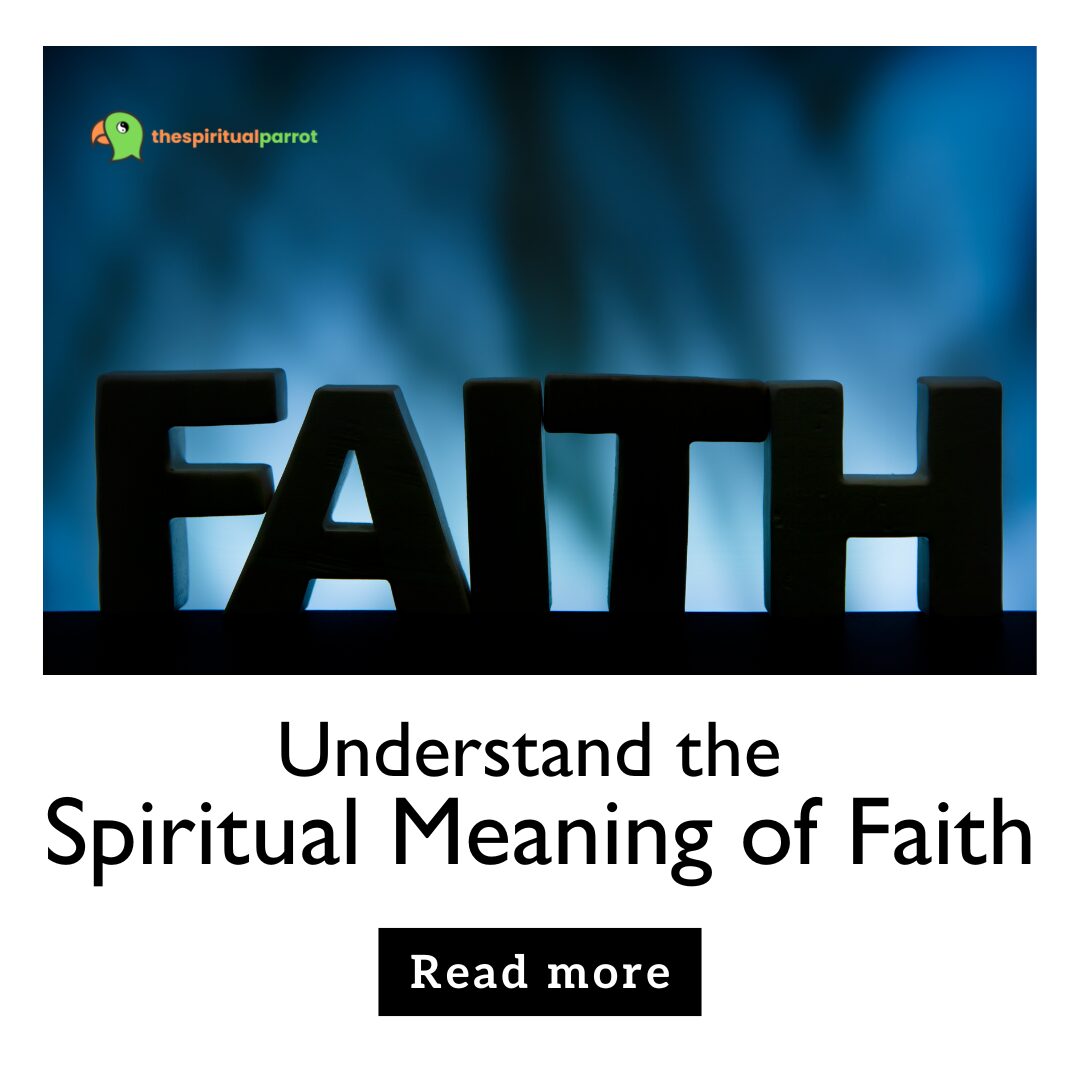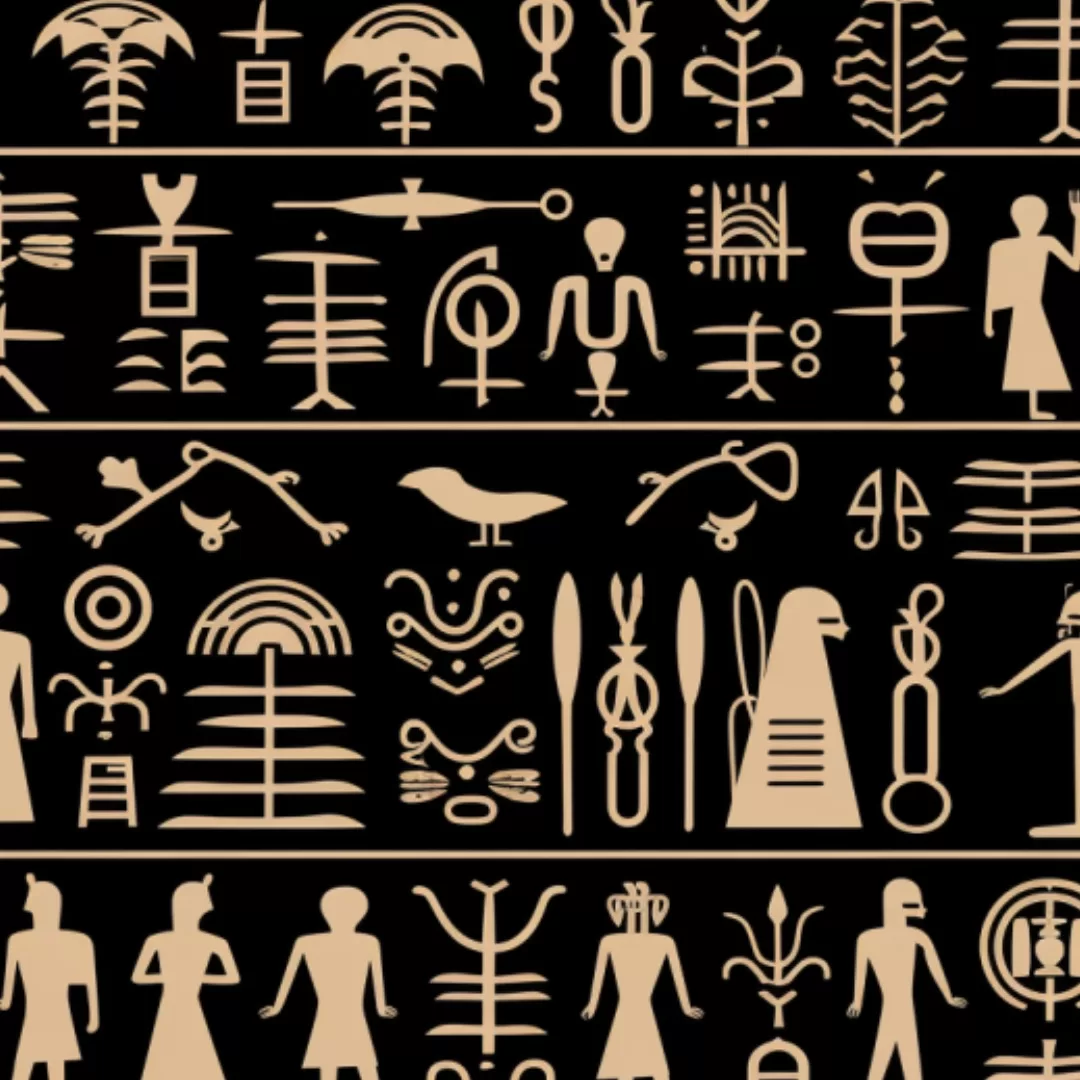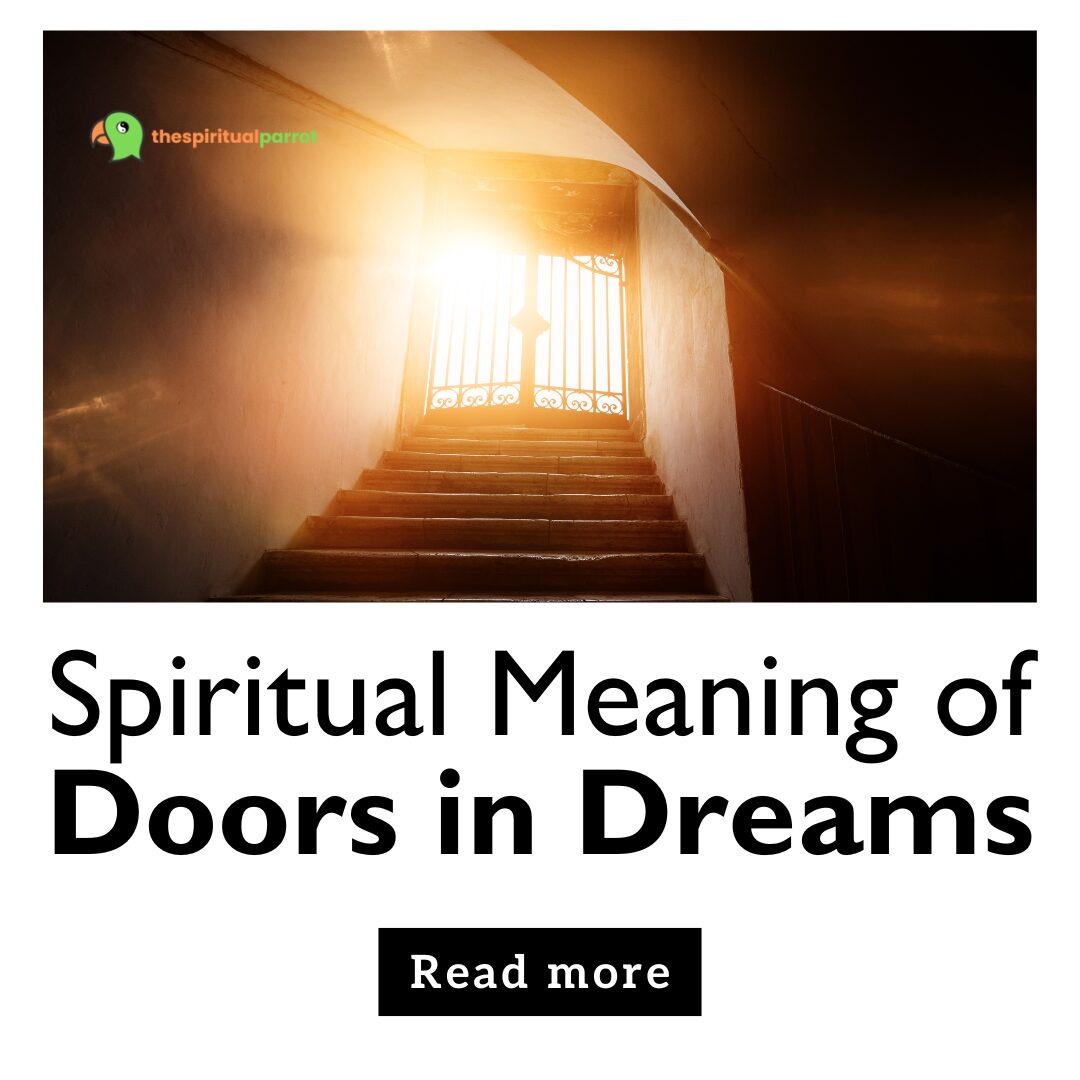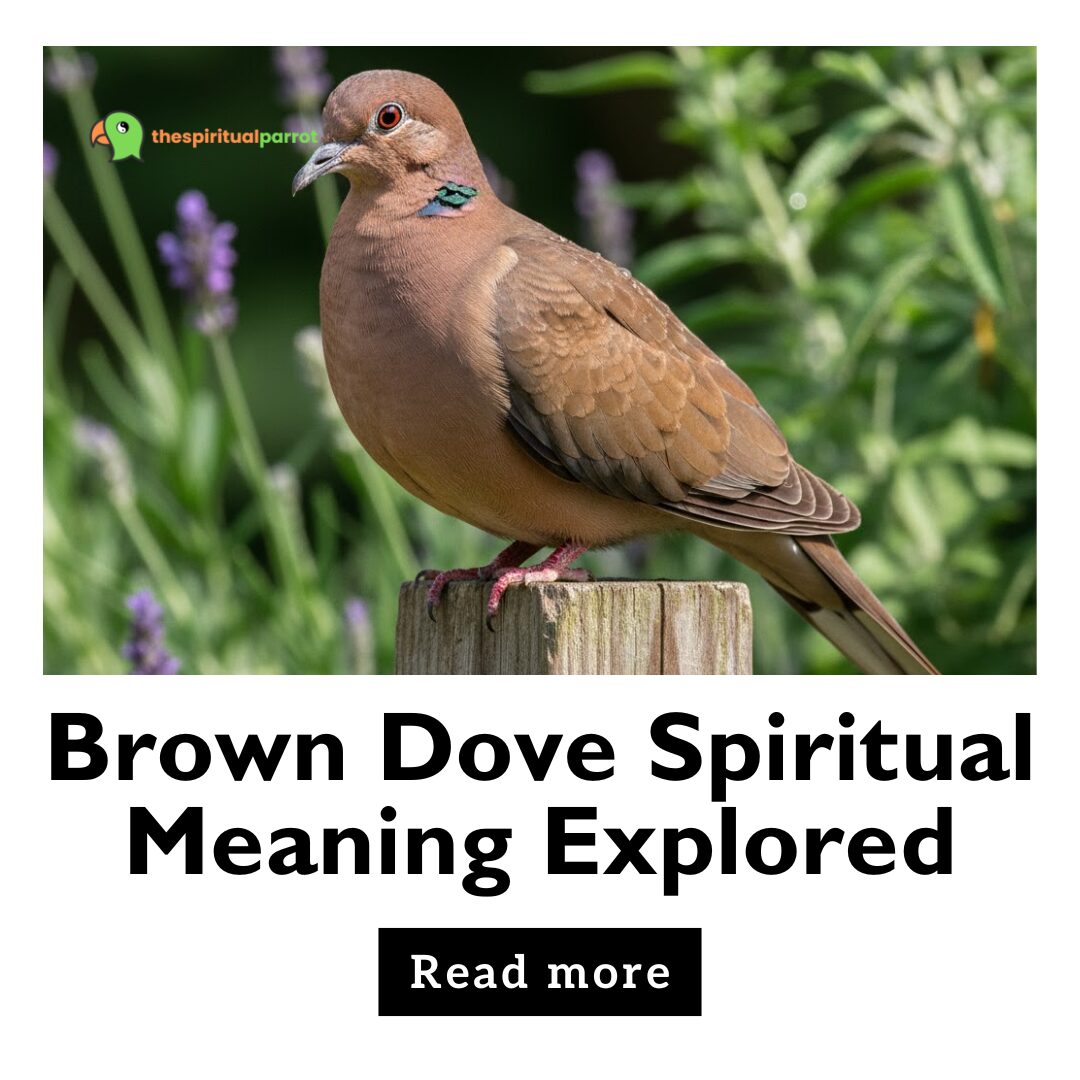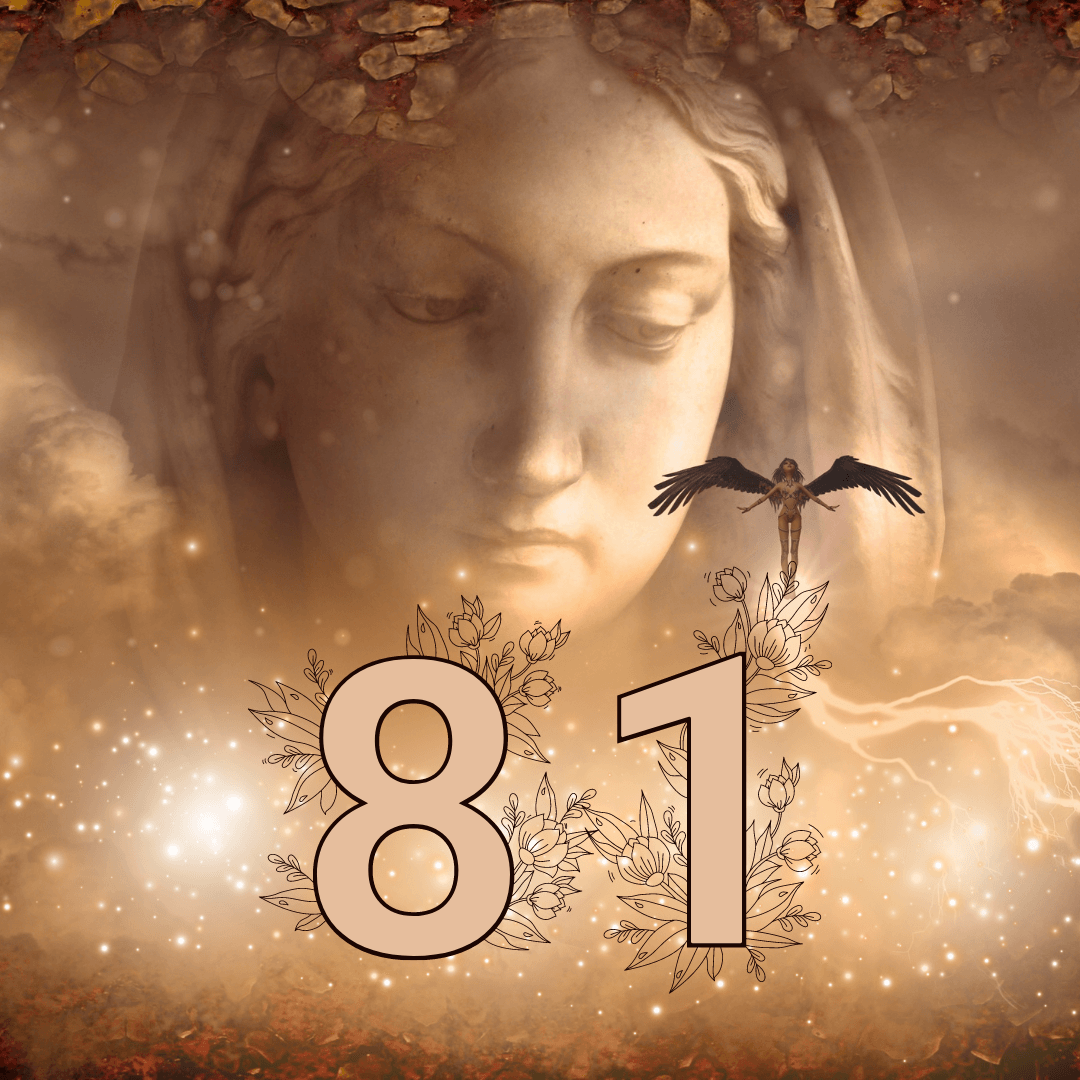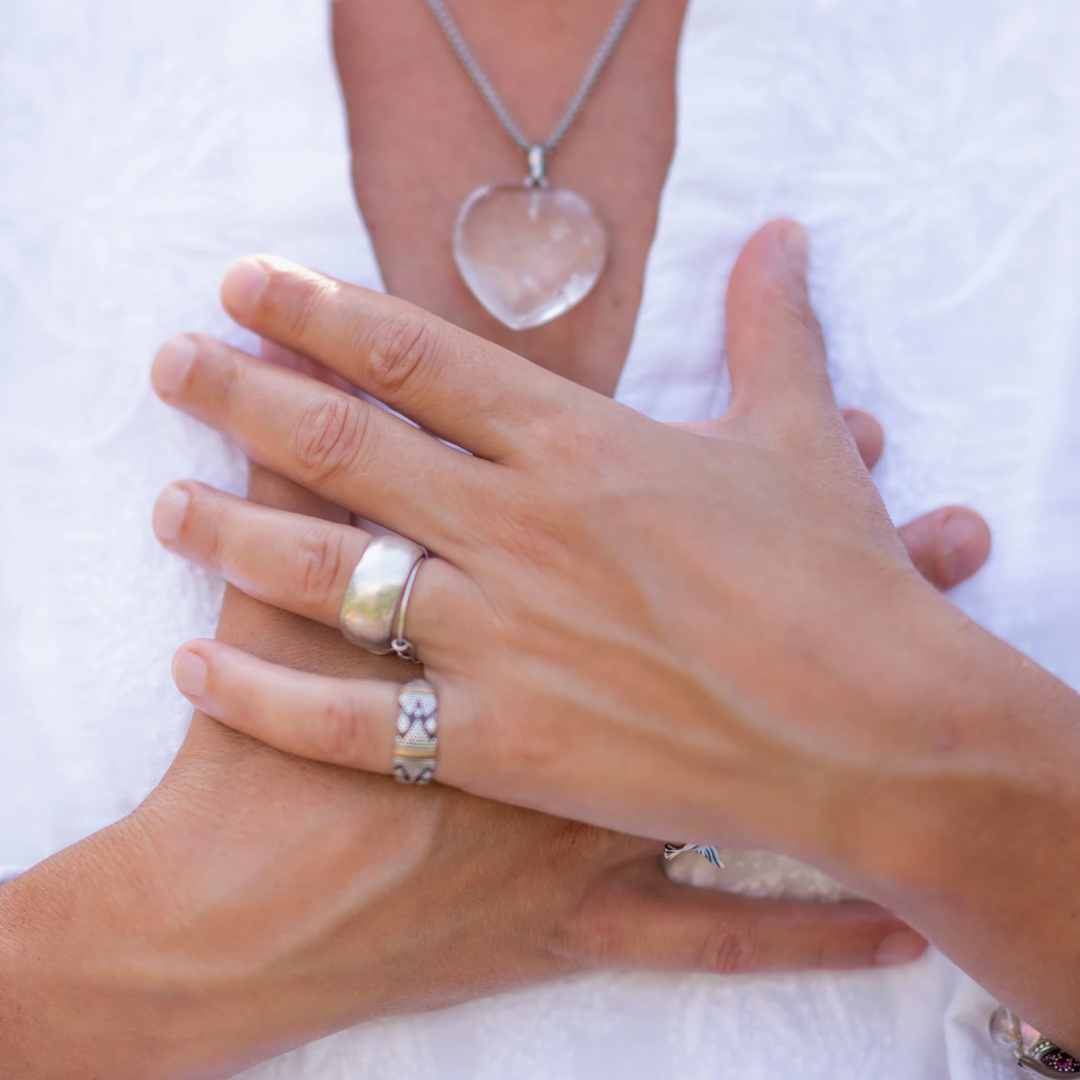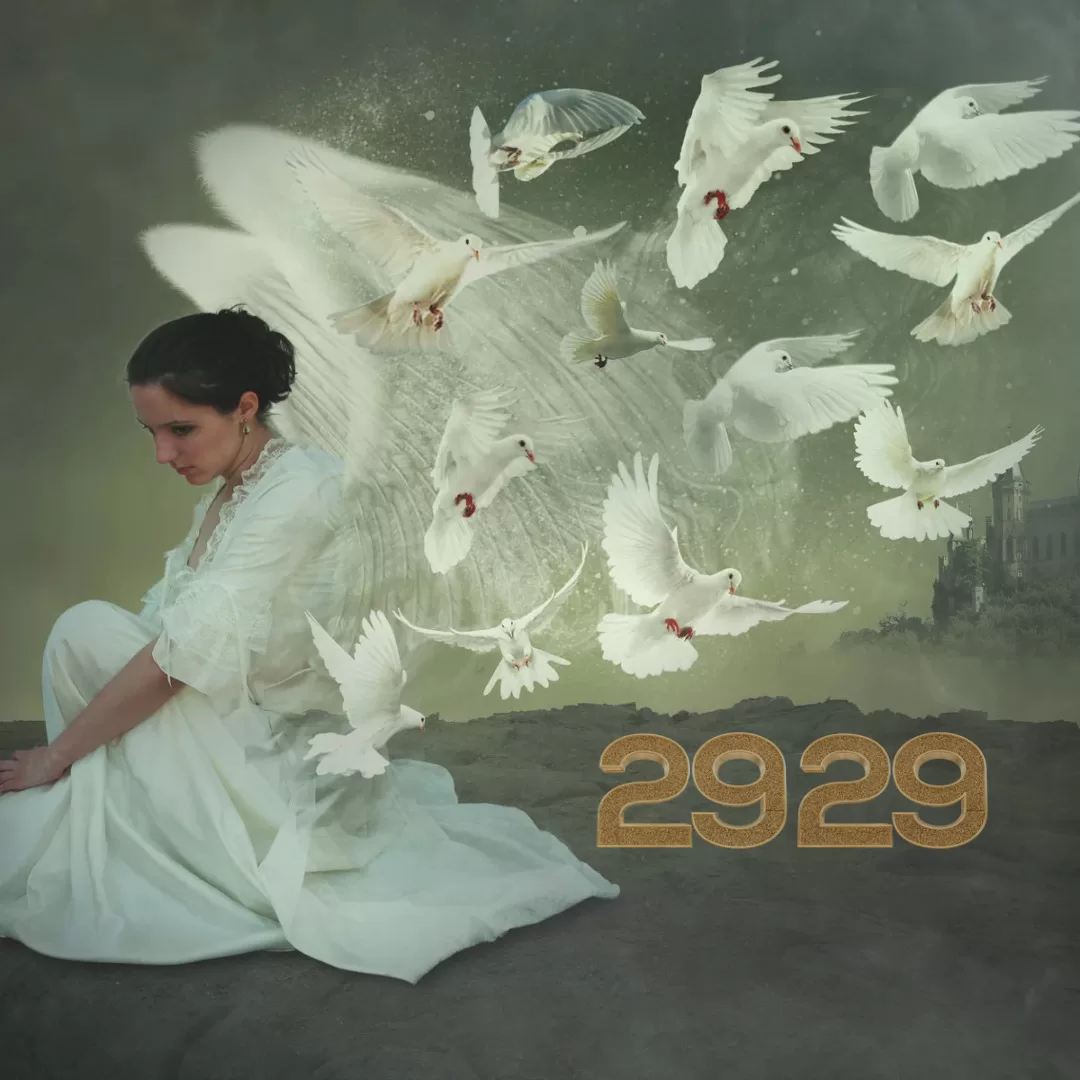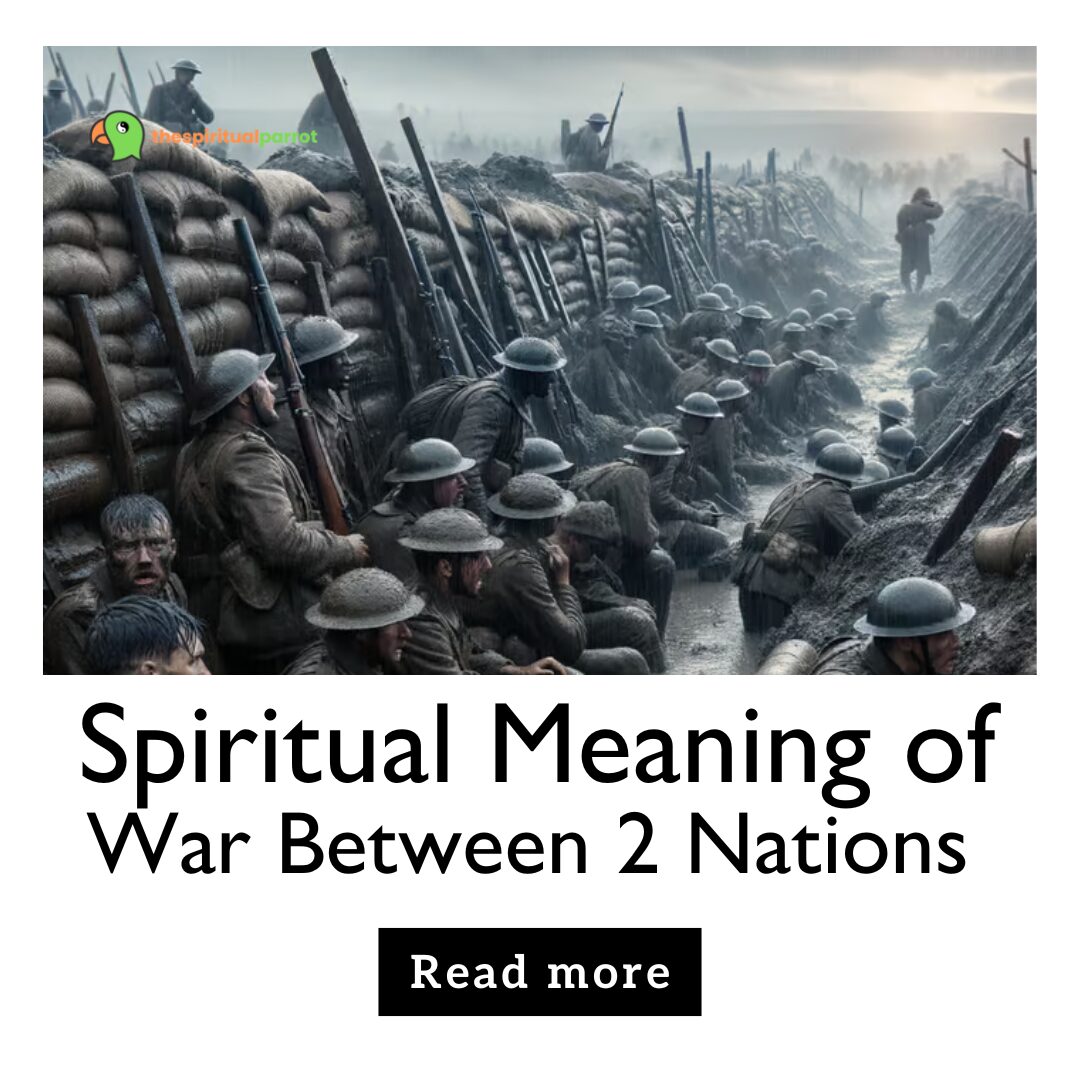Faith. It’s a word we use often — in prayers, promises, and quiet hopes — but rarely pause to truly understand. Is it belief? Trust? Blind optimism? Or something deeper and harder to define?
For many, faith is assumed to belong in temples, churches, or scriptures. But the spiritual meaning of faith goes far beyond religious rituals. It’s about trust — not just in a higher power, but in life, in timing, and sometimes, in yourself when nothing else makes sense.
In a world that demands evidence and guarantees, faith asks you to lean into the unknown. It whispers that you don’t need to see the full path to take the next step. That kind of inner grounding doesn’t come from logic — it comes from experience, from stillness, and from something soul-deep.
In this post, we’ll explore what faith truly means from a spiritual perspective — how it shows up in daily life, how different traditions view it, and how you can begin defining it for yourself, especially in times when clarity is nowhere in sight.
The Spiritual Meaning of Faith in Everyday Life
When we think of faith, we tend to think of something grand — the type of belief that moves mountains or weathers storms. But the real spiritual logic of faith is somewhere much smaller and quieter.
It is in the decision to get up and try again after one of those hard days. It’s the quiet and persistent voice inside of you that whispers: “Keep going” — even when your outward reality gives you no reason to. Faith doesn’t always have to roar — sometimes, it just whispers “you’re not alone” when you need it the most.
The existence I’m talking about is not one of certainty, but one of trust in something beyond, in the face of uncertainty. It’s the string that anchors us to something larger, even when we don’t have all the answers.
Let’s examine how this sort of belief manifests outside dogma — in the quintessentially human moments of everyday life.
Faith as Trust in the Unseen
Think about the last time you took a step without knowing what the outcome would be. Maybe you left a job, confessed something difficult, or walked away from something that wasn’t right for you. You didn’t have a roadmap — but you had something holding you together.
That “something” is often faith.
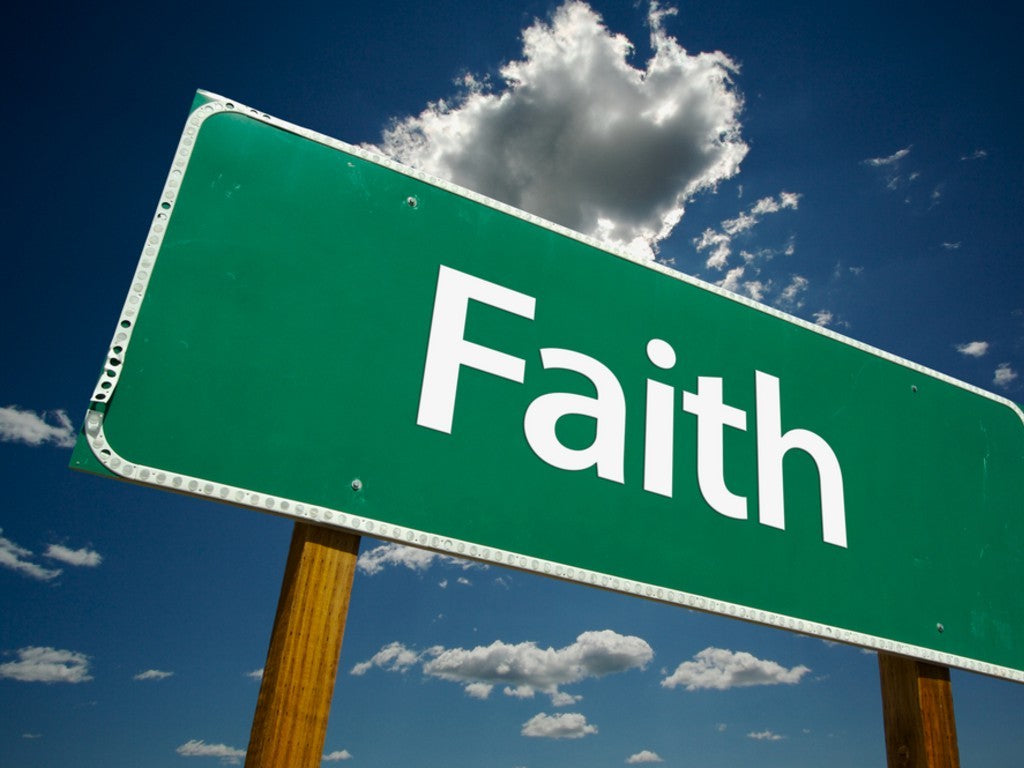
To trust the unseen is to believe that life is unfolding in your favor, even when you can’t yet prove it. It’s a quiet agreement between your soul and the universe: I may not know how, but I know I’m not lost.
Faith as Inner Alignment
Another layer of the spiritual meaning of faith is living in alignment — when your choices reflect what you believe in, even when it’s hard. It’s easy to say we have faith when everything’s going well. The test is in the decisions we make when no one is watching.
Do you trust yourself enough to say no to what drains you? Do you stay true to your path when it doesn’t yet make sense to others?
Faith, in this sense, becomes a form of integrity. A soul-deep commitment to living from your center — not from fear or external pressure.
Faith in Different Religious and Spiritual Traditions
While the spiritual meaning of faith is deeply personal, it’s also been explored, shaped, and honored across every major spiritual path for centuries. Different traditions may define it in their own languages — but the core remains the same: trust, surrender, and connection to something beyond the self.
Faith isn’t bound to one doctrine. It’s a thread that weaves through all paths — whether through prayer, silence, chanting, or stillness. Let’s look at how faith shows up in diverse spiritual traditions, and how these interpretations often meet at the same emotional truth.
Common Threads Across Faiths
In Christianity faith is seen as “the substance of things hoped for, the evidence of things not seen.” It is the gateway — a span between belief and divine trust.
According to Islam, faith (Iman) is fundamental to one’s spiritual journey. It’s not just faith in Allah, but submission to divine wisdom, especially when life is hard.
In Hinduism, faith (shraddha) indicates a deep faith — commonly in divine timing, karma, or the voice of the soul. Faith is something that is constructed from taking action in your faith devotion, and your experiences.
Faith in Buddhism is not blind. It’s a product of insight, of personal understanding, of the slow, steady opening of truth in practice. And so it’s not worship you offer here, but trust in the path itself.
Despite these differences, both paths teach this: Faith is not something passive — it’s something active, lived and earned.
Beyond Dogma — The Living Spirit of Faith
Religions give us language, structure, and symbols — but the spirit of faith can’t be boxed in. For many, real faith begins when inherited beliefs fall short. It’s not about what you were told to believe — it’s about what you’ve lived through.
This is where spiritual faith becomes a personal journey. You might find it outside traditional institutions. In nature. In synchronicities. In quiet mornings or late-night tears. Faith lives in the way you move through the world when no one is guiding you but your inner voice.
Letting go of dogma doesn’t mean losing faith — it often means finally beginning to understand it.
Finding the Spiritual Meaning of Faith for Yourself
At some point, we all outgrow definitions that were handed to us — especially when it comes to something as intimate as faith. Maybe you’ve moved away from organized religion. Maybe you’ve faced something that shattered what you once believed. Or maybe you’re just starting to ask: What does faith mean to me, really?
This part of the journey is about reclaiming that word — not as something abstract or inherited, but as something deeply lived.
Ask Yourself What Faith Looks Like in Your Life
You don’t need a spiritual teacher to tell you what faith is — your own life has already shown you.
Think about:
- A time you kept going when things didn’t make sense
- A moment when you trusted a decision without knowing why
- A quiet gut feeling you followed, even when it wasn’t logical
Those were moments of faith. Not loud. Not always pretty. But real.
Try journaling around questions like:
- When did I trust the process, even when I was afraid?
- What does “faith” feel like in my body — calm? hope? courage?
- Have I ever felt held or guided, even when I was alone?
These reflections aren’t just introspective — they’re grounding. They help you meet faith not as a concept, but as a presence already alive in you.
Building a Personal Faith Practice
Faith deepens when it’s practiced — not in rituals that feel forced, but in everyday choices that reconnect you to something real.
Some simple ways to cultivate your own version of faith:
- Sit with silence instead of rushing to fix or control
- Walk in nature and observe the intelligence around you
- Light a candle and set an intention to trust the unknown
- Speak to your higher self or source — out loud, on paper, or in your heart
This isn’t about creating a “perfect” spiritual practice. It’s about building a relationship with trust — and learning to return to it, again and again, especially when life feels unclear.
The Spiritual Meaning of Faith During Hard Times
Faith is easy to talk about when life feels steady. But its real power shows up when things fall apart — when logic runs out, control slips away, and the next step is wrapped in darkness. That’s where the spiritual meaning of faith transforms from a gentle idea into something solid, lived, and unshakable.
In moments of uncertainty, fear, or grief, faith doesn’t erase pain — it holds you through it. It becomes less about believing something specific, and more about trusting that you’ll find your way through — even if you can’t see how yet.
Stories of Faith in Darkness
Think of someone who’s survived deep loss, chronic illness, or rock-bottom moments — and still shows up with softness in their eyes. Chances are, they didn’t get there by chance. They got there because something inside them refused to give up.
Sometimes that “something” is called grace. Sometimes, resilience. But often, it’s faith — quiet, gritty, and tested by fire.
Real faith is often born in the dark. It’s built when:
- A mother keeps hope alive during her child’s illness
- A person in recovery takes it one day at a time
- Someone leaves a toxic relationship with nothing but intuition
These aren’t stories of perfection. They’re stories of surrender — of trusting the next breath, the next sunrise, the next opportunity to rebuild.
From Fragile to Rooted — How Faith Evolves
The first version of faith most of us learn is fragile — based on outcomes, signs, or the hope that if we do things “right,” life will reward us. But as we grow, that version often breaks. And when it does, a deeper one can emerge.
Rooted faith doesn’t demand certainty. It makes peace with not knowing.
It says:
- “Even if I don’t understand, I will move forward.”
- “Even if this hurts, I am not abandoned.”
- “Even if this takes time, I trust the unfolding.”
That shift — from hoping it all works out to trusting that you’ll navigate whatever comes — is what spiritual maturity looks like.
Living the Spiritual Meaning of Faith
The spiritual meaning of faith isn’t something you find once and keep forever. It’s something you return to — over and over — in moments of doubt, change, stillness, and growth. Sometimes it feels strong, like a deep inner knowing. Other times, it’s quiet — barely there, but still present enough to keep you moving.

Faith doesn’t ask you to have all the answers. It simply asks you to stay open.
To trust that you’re not alone.
To believe that you are guided — even when the path isn’t clear.
To know that life has a rhythm, even when it feels offbeat.
You don’t need to follow a religion or wait for a sign to explore faith. You just need to listen — to your breath, to your experience, to the parts of you that have made it through every hard thing so far.
So pause for a moment. Ask yourself:
Where has faith already shown up in my life?
And how might I live from that place — a little more — starting today?
Because the truth is, faith isn’t something far away. It’s already inside you. It always was.
